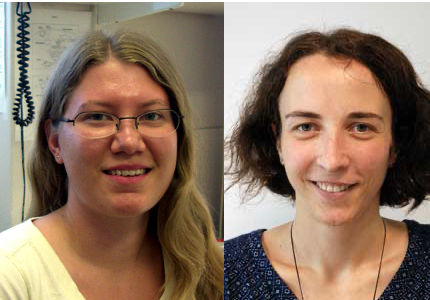Sandvig group publishes that changes in the membrane lipids diacylglycerol and phosphatidic acid alter intracellular transport

The membrane lipids diacylglycerol (DAG) and phosphatidic acid (PA) can regulate membrane transport by recruiting proteins to the membrane and by altering biophysical membrane properties. The Sandvig group (first two authors Anne Berit Dyve Lingelem and Simona Kavaliauskiene) recently published in Cellular and Molecular Life Sciences how changes in these lipids affect regulation of intracellular transport from endosomes to the Golgi apparatus.
Modulation of DAG and PA levels using DAG kinase (DGK) and phospholipase D (PLD) inhibitors gave a strong increase in retrograde transport of ricin but had little impact on ricin recycling or degradation. Inhibitor treatment strongly affected the endosome, increasing endosomal tubulation and size. Studies with siRNA to knock down different isoforms of PLD and DGK revealed that several isoforms of these enzymes are involved in regulating the transport to the Golgi. These knockdown studies also showed that knockdown of one isoform often resulted in changes of other isoforms, demonstrating the importance of checking if compensatory mechanisms take place during knockdown studies. Finally, the study also demonstrated the importance of lipidomic analysis when performing studies with inhibitors of lipid metabolism, as compensatory mechanisms were observed, i.e. that the changes in the lipidome were different from what one might expect.
Links:
The Cellular and Molecular Life Sciences article:
Lingelem ABD, Kavaliauskiene S, Halsne R, Klokk TI, Surma MA, Klose C, Skotland T, Sandvig K (2020)
Diacylglycerol kinase and phospholipase D inhibitors alter the cellular lipidome and endosomal sorting towards the Golgi apparatus
Cell Mol Life Sci
DOI 10.1007/s00018-020-03551-6, PubMed 32447426
Home page of Kirsten Sandvig's "Intracellular transport" group
